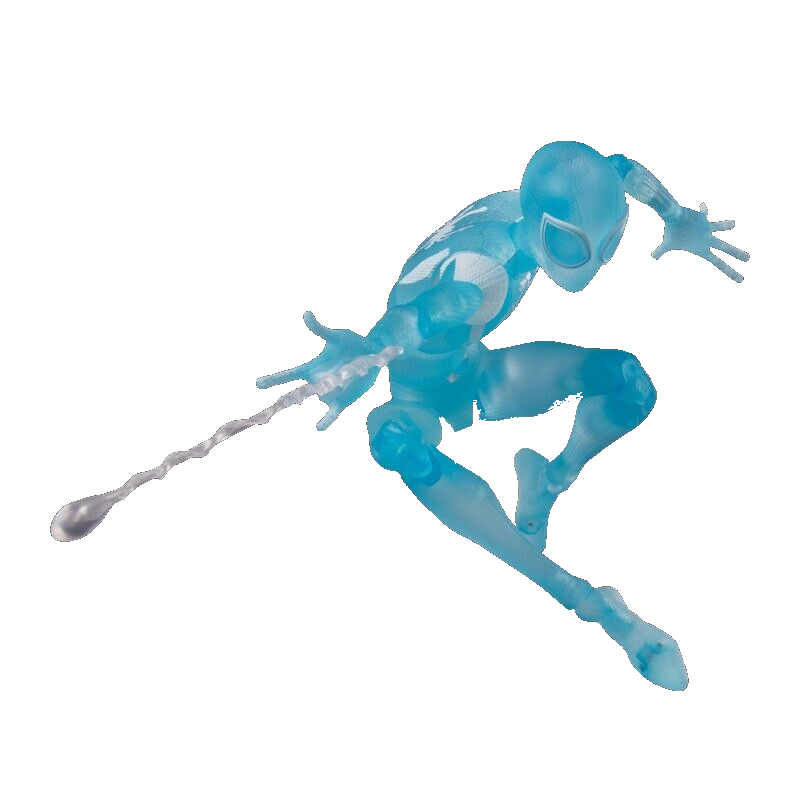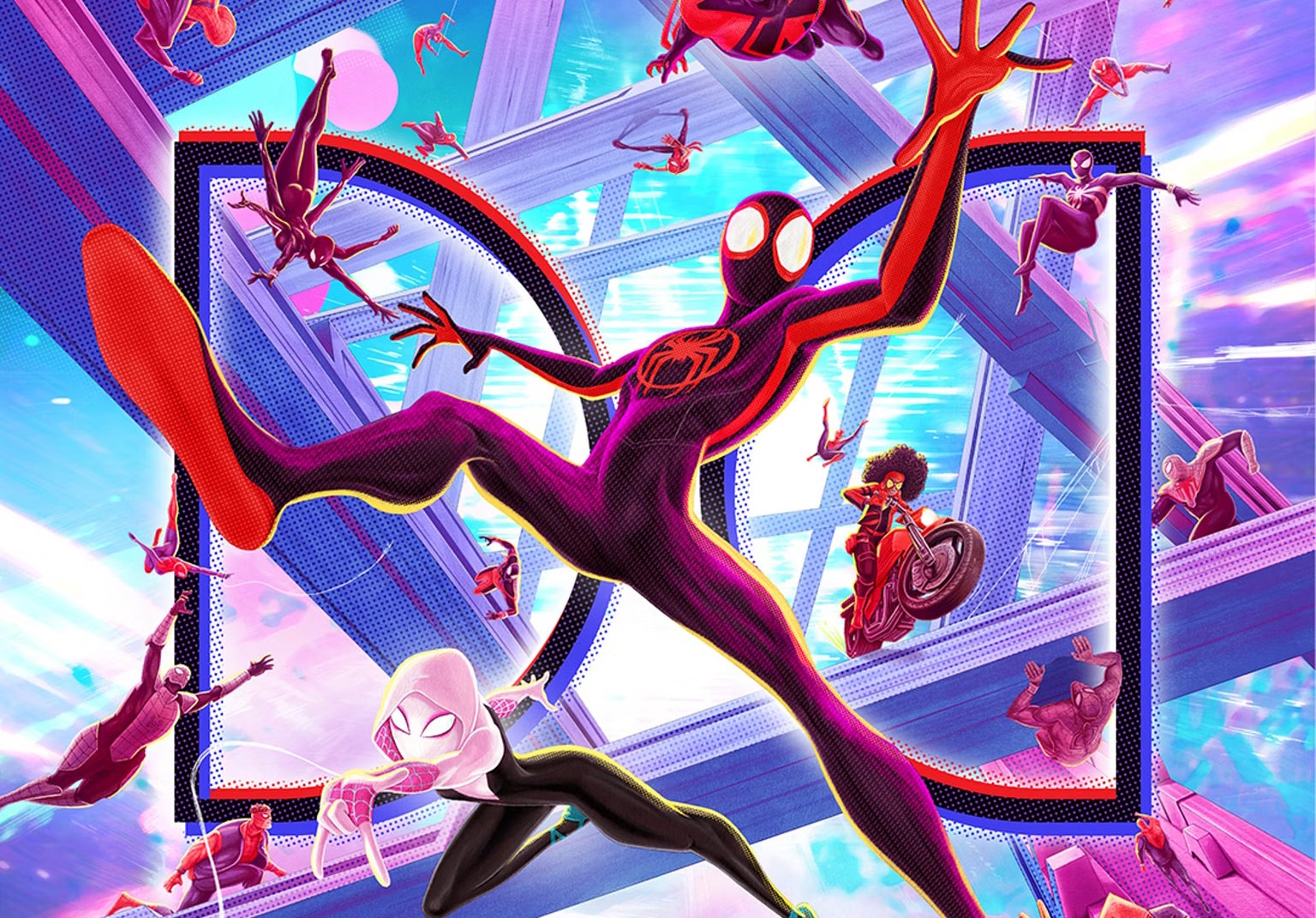
One of the interesting effects I come across while sitting in a theater waiting for a movie to start is more or less getting a snapshot in time about how the film landscape is at the moment. When I watched Across the Spider-Verse on Tuesday, 6/6/2023, I was struck with just how most movies kind of seem to be… nothing to watch. They tell you so much of the story in the trailer but also they focus on the elements that feel the most played out.
A lot of movies are basically based on brands as opposed to actual ideas and stories, but even the original offerings didn't look appealing, which was weird. Dreamworks is doing a movie about a kraken that takes a shot at the Little Mermaid but it has an extremely boring trailer that basically goes through what appears to be most of the movie. Elemental, Pixar's summer project, is poised to fail and I think a large part of it is that it doesn't really have a lot to say and the Pixar visual style is nice and expensive looking, sure, but it's also being pushed in a way where it somehow doesn't seem visually engaging. These people are made out of fire, water, earth, and air and simulated with cutting edge, new developed technology and yet they barely register as really interesting designs.
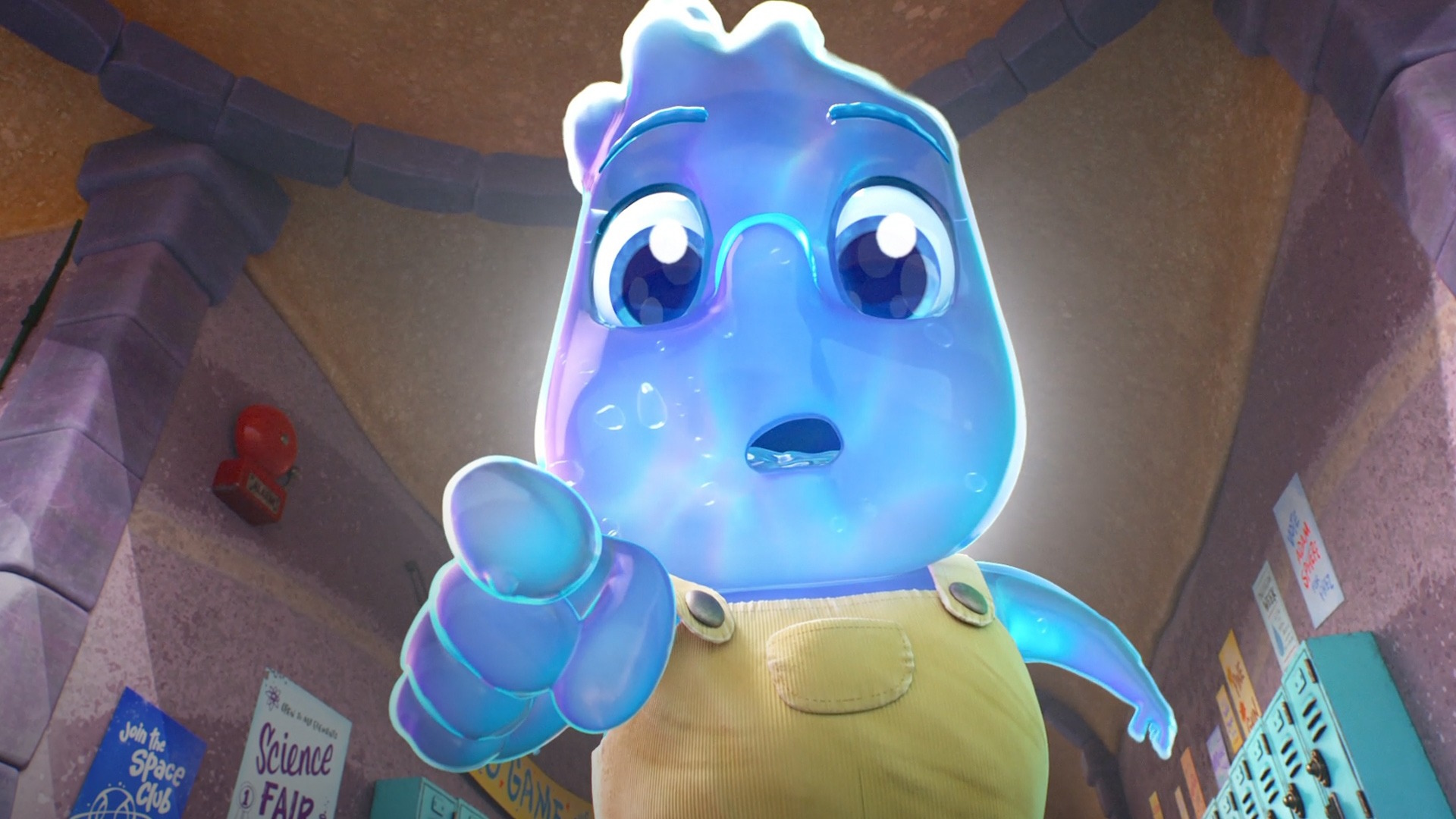
I'm not as down on Elemental as others are but it has an insane budget and we live in an era where Chapek has managed to discount Pixar's best efforts by putting them on Disney+ and this and Lightyear are the offerings they're making you go to a theater to see. It's shameful. With recent marketing seeming to highlight the film's worst qualities and overall being a racism metaphor that doesn't exactly work, it's safe to say that Elemental might continue a downward trajectory that is honestly really sad to see out of a powerhouse like Pixar.
I think the exciting thing about Across the Spider-Verse, and why I'll excuse a lot of its faults such as the two parter format, is that it's so different from anything else coming at the time. It is visually ambitious and at half the budget of Elemental. Does every film need to mix styles in the way Spider-Verse does? Absolutely not, but it would not hurt to make these films look more visually distinct. Puss in Boots: The Last Wish went for a painterly style that put it on a level that to be frank, makes a lot of Dreamworks' other projects look kind of shamefully tame and elevates the Shrek spinoff to be the best film in a contest it's not even really trying to compete with.
The fact both Spider-Verse movies came from Sony Animation of all departments really isn't actually that surprising if you know their history. Gennedy helmed the Hotel Transylvania series with a flair that required some of the most expressive, dynamic 3D animation to emulate a more fluid 2D style that to be frank, did set such a high standard in a quiet way. For all their faults, Sony Animation was at least interested in trying to do more visually interesting movies from almost their inception and at a smaller budget. Cloudy with a Chance of Meatballs isn't really a visually challenging movie but compared to its contemporaries at the time it had a style that set it apart. Characters are openly shaped, there is a real aesthetic to that movie that openly invites a more frantic animation style than Disney or Dreamworks which often kept its movement grounded with some flair.
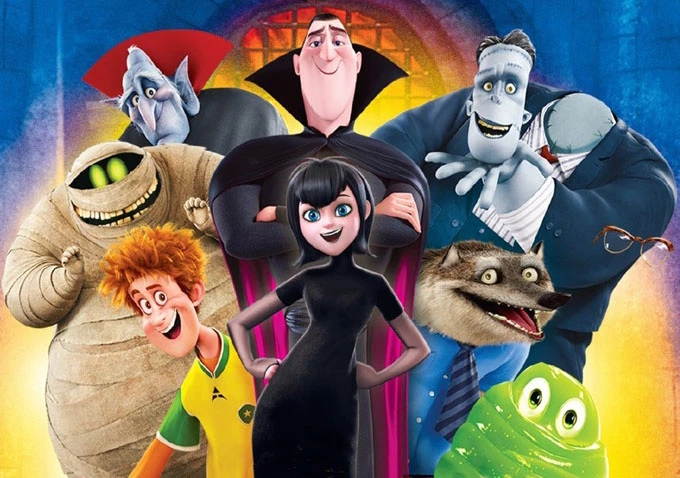
It's this secret sauce that keeps their movies the most interesting and helps the studio stand as something that feels like it's led by artists wanting to not just sink into a challenging project but change the animation industry as a whole to take on new risks. You can't emulate Spider-Verse as a project in a way that I feel like a lot of other movies tend to look to big successes and try to copy- it's such a game-changer in every fashion that the sequel took that bold experimental leap and multiplied it a hundred fold. It paid off.
In a way, it still feels like a lot of the industry is struggling to react to Into the Spider-Verse. Sony had an upper hand in terms of being able to bring that sensibility with Mitchells vs the Machines and start other Spider-Verse projects, and Puss in Boots: The Last Wish joins the Bad Guys in a small shift for Dreamworks that seems to have generally paid off. Disney looks to change things up with Wish, although Turning Red arguably feels like their closest response so far and for good reason- it feels visually unlike a lot of Pixar with Ghibli sensibilities and super expressive characters, as well as overlaying a lot of anime flair. You can kind of see some of that continue to leak into other projects but overall Pixar generally seems to not want to stray too far away from their house style- after all, they want you to be impressed with the realism they've been able to pull off.
Across the Spider-Verse is truly a visual collage of styles- live action, literal 3d collage, traditional drawings in two types, water color, graffiti, video game, anime, 2D of multiple kinds, LEGO, I could truly go on and on. It presents a harmony that is just never present across any other attempt at a multiverse that feels as chaotic as it should be and feels like a true love letter while at the same time making meta commentary about how stories cannot stay the same in some adherence to "canon".
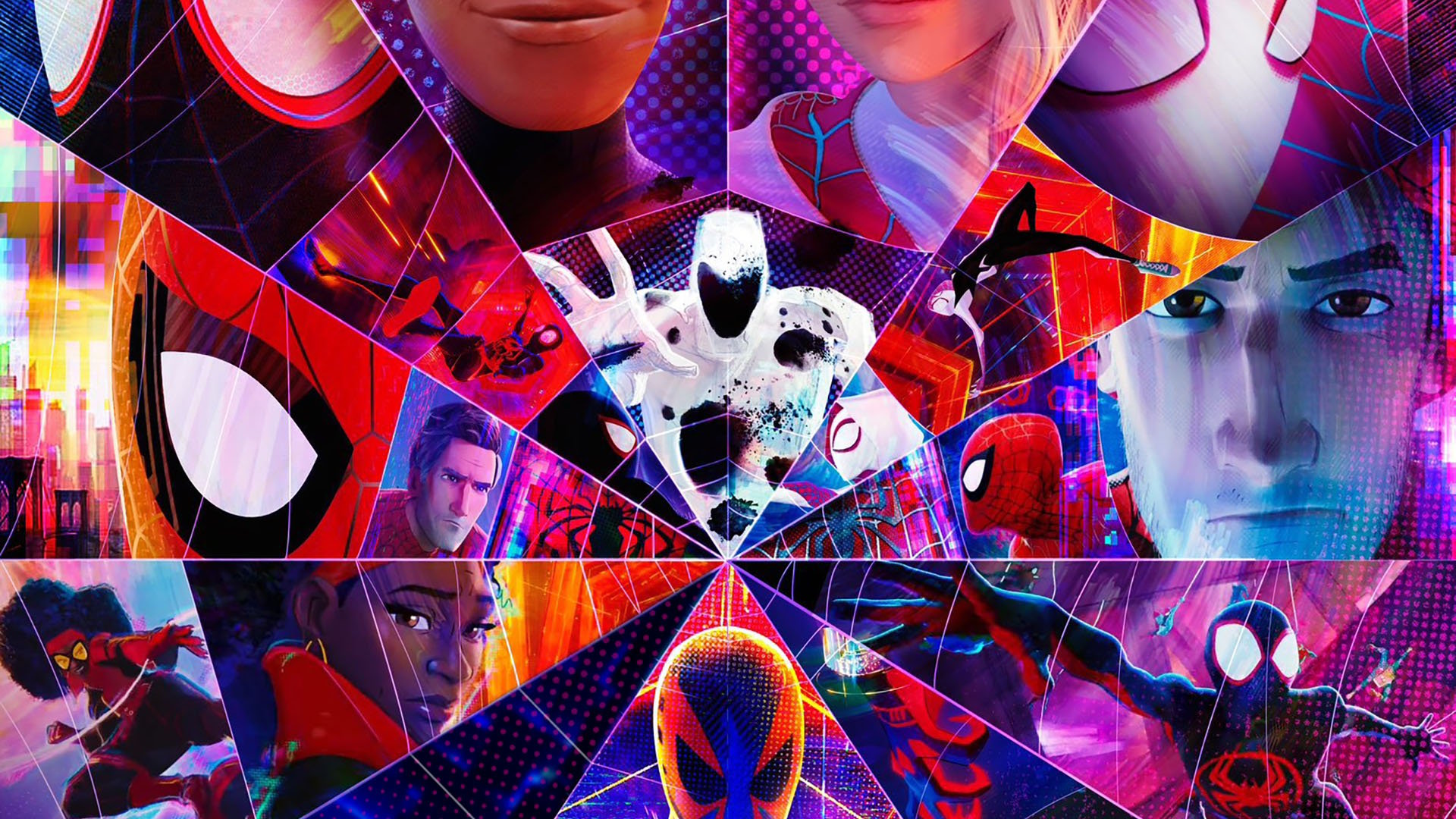
I think a lot of people generally can't admit, and where I see a ton of nitpicking, that Miguel's goal doesn't make sense because it's not supposed to. He tried to live in a universe where he had been murdered and the world collapsed in on itself for some reason we have yet to truly know, but he attributes it to not adhering to events that connect across multiple iterations of Spider-Man.
The reason I say there is an intention for it to not make sense is because it can't. There are living contradictions to this whole idea of canon, that attributing events to some other force beyond just the way the world throws both good and bad at the general concept of Spider-Man is impossible. Peter B. has a child that he only had because he met Miles. Miles is a living contradiction and "anomaly" because even though a spider supposedly was going to bite someone else, it fell into his universe instead and bit him. If you really wanted to believe him not adhering to canon brought about The Spot, I think that sort of cause-and-effect is a hook that you are fully biting onto for no good reason. They want you to do that because it's the easiest way to believe that's the reason good and bad things happen- they're supposed to.

It is very much a sort of religious dogma and dilemma as it is a meta-commentary on the Spider-Man character. Hundreds of Spider-Men have resigned themselves to letting things happen because they have been told that's what keeps them connected, that's the thing that builds this web of realities. Challenging it is scary. The truth that it's chaotic and random is far scarier than just living the lie that it works that way because it's supposed to. This in turn, leads to a self-fulfilling causality loop.
I could speculate about what happens in the third movie but this had more interesting things to say about Spider-Man than No Way Home. Despite an excellent performance from Willem Dafoe, who manages to outdo his original performance in Raimi's first installment in many spots, that film overall is held together with duct tape and glitter. While I can admire that this is a film that openly wants to recuperate villains instead of defeating them, it sort of resigned itself to the same fatal defeatism Miguel comes to. You just need to meet your Mary Jane, Andrew Garfield Spider-Man. You will have a close friend betray you, Tom Holland Spider-Man.
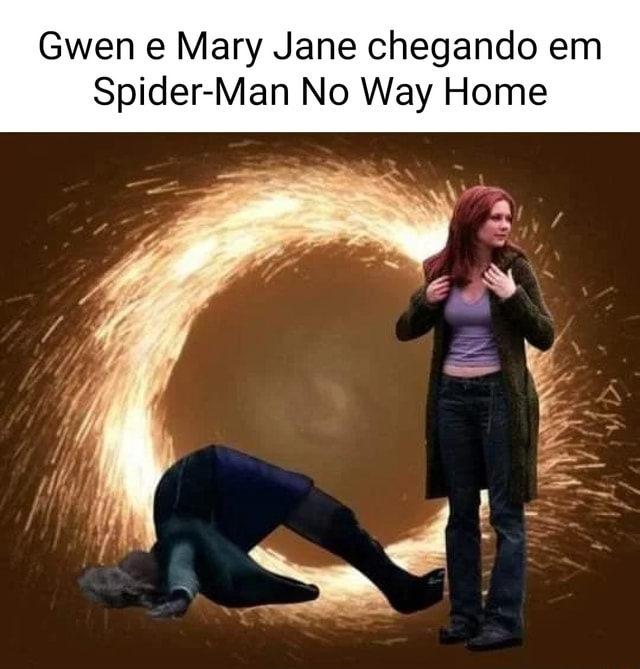
Across the Spider-Verse confronts this head-on in an effective scene where Miles Morales is basically given an "intervention" because he won't succumb or understand this fatalism that every other Spider-Man has given into. We tragically see Gwen, Peter B., and Peni have all given into this fatalism for their own reasons, to varying degrees. Gwen has given in because she has to, or she goes back to her own universe and confronts her father who very may kill her. Peter B. doesn't necessarily believe in it, but he still goes to "church" regardless- he's not going to push the boat with a baby on board. Peni is silent for the movie but there's sort of a quiet pain she gives- she had to reconstruct her robot, she had to grow up during the time between movies.
Hobie is the truest ally in many senses because he believes in tearing the system down, and I get the impression that he largely was there to fuck with it to begin with, taking it down almost from the inside in a way. He is similar to Peter B. but without really the mask of going along with things just for the sake of it. Ultimately, he's someone who more or less represents the radical change that both Miles and Gwen have to confront regarding their lives and beings.
Miguel's characterization is said to be too different from the original- I think there may be more going on with him, especially given he seems to inject a spider-serum into himself and there's multiple weird moments where his status as a Spider-Man is questioned and he is played up as if he's a vampire in a way the comics don't really. Could he be secretly Morlun? I don't necessarily know if I believe that theory entirely, but Spider-Man 2099 has always swung more towards being Batman than Spider-Man, being very serious in costume and more comedic out of it. He has to use talons to climb, his Spider DNA affects him differently from other iterations of Spider-Man- he is very much an anomaly himself in the grander scheme of Spider-Men and Spider-Women. I think this is a large part of why his story is the way it is- it's a looser take on the character that might have other ramifications and implications, but let's take out the speculation for a second- it still sort of jives with Miguel on a conceptual level.
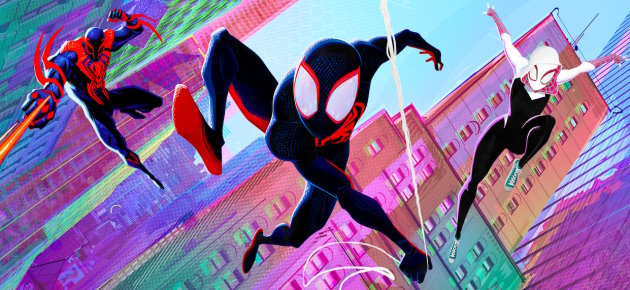
I am ultimately extremely blown away with what this movie managed to accomplish. Not even just on its relatively small budget which is actually a lot more than previous Sony movies, although there is a whole other movie to factor in later that's part of development costs, but in general the story about parenthood and growing up was well-done and spoke to me on a pretty significant level. There are plenty of people who have noticed Gwen's story has trans overtones and I think it's intentional- there are endless debates about what extent to take that for that character but I think it's really powerful and takes full advantage of the aesthetic of Gwen's world, which leaks color and changes with every shot. It's absurdly crafted for maximum storytelling potential in a way that only animation could ever do it to the extent this one does.
Taking the multiverse element into account- it's a pretty basic multiverse compared to Everything, Everywhere, All At Once but it's mostly a device to mask concepts such as long distance friendships and community. It's dressed to the twelves in style, but it never is more style than substance. I want films to be this ambitious while still saying something. Avatar 2 has little substance to talk about regarding the same themes of parenthood and is part of a lengthy story we're going to be forced to deal with so long as James Cameron continues to be obsessed with white savior tropes. Its style is impressive from an overhead view, but it's ultimately something I just kind of find shallow because it's attempting to immerse you in a world you know isn't real. It spends untold riches to make sure a guy drinking from a coffee cup inside a mech gets through into the final project and it's a gag that is told with no finesse.
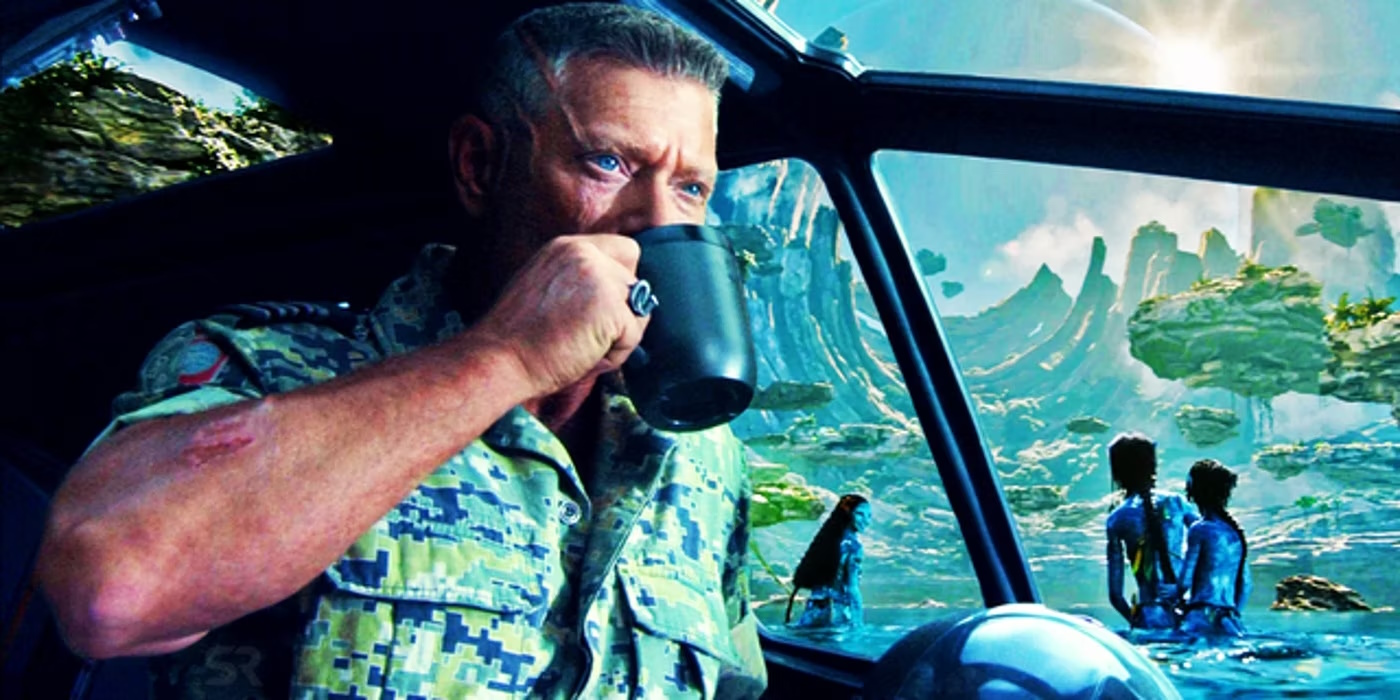
Avatar 2 is a project nobody else in the world will get to make beyond James Cameron. It requires the manpower of a city to see to one man's racist as fuck vision come to life. Spider-Verse is the sort of inspirational project that to be honest, kind of needs to exist more. I'd love to see more stories told with this sort of creativity and finesse in original works. I'll probably like it more than any story told in the Avatar universe too.
One of the big takeaways from me honestly was that it was very much an inspirational film for creative people. There is a 14 year old who worked on a whole segment of the movie that takes place in a LEGO universe. While I originally felt dejected upon hearing that news as I'm much older, it helps the first film's themes of anyone being able to take up the mask and do incredible things just to do so on a production level for the sequel. That theme carries on in a big way with Miles too- in a film where the entire multiverse seems to be predestined, somehow Miles got bit by a spider that was never meant for him. It's actually one of these incredible plot beats that hammers home that you decide your own damn destiny. It's a scary realization in some ways, because it also might make people angry to realize there aren't rules in place like once thought- and it's a metaphor that applies to a lot of things.
So ultimately, you have to take chances. You deserve them. It might not work out, but that is life, right? There is nothing predestined, there is no simulation, there might not be a god. You are the master of your own fate, the traveler of worlds. Know who you are and take a leap of faith because you can- and sometimes you must.
